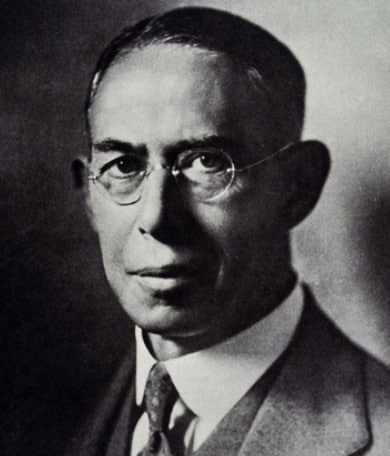
Joseph Erlanger was born on January 5, 1874, in San Francisco, California. He was affiliated with Washington University in St. Louis for a significant portion of his career, where he conducted his groundbreaking research and contributed extensively to the scientific community. He was not only an accomplished scientist but also a dedicated mentor, influencing and guiding many future researchers in the field of physiology. Throughout his career, he made substantial contributions to various aspects of physiology, focusing on nerve physiology, nerve conduction, and the electrical properties of nerves.
During the 1920s Joseph Erlanger and Herbert Gasser studied the properties and distribution of nerve fibers. They divided nerve fibers into two different types with different thicknesses and showed that the thicker fibers convey nerve impulses faster. In 1944, Erlanger and Gasser shared awarded the Nobel Prize in Physiology or Medicine for their discoveries relating to the differentiated functions of single nerve fibers. Their collaborative research led to the understanding that different nerve fibers have unique functions, conducting nerve impulses at different speeds. Reflecting on their research they asserted:
Our bodily functions are governed by our nervous system, which consists of many nerve cells with extensions, or nerve fibers, that form a system of connections between the brain and spinal cord and the rest of the body. Signals in the nervous system are conveyed by weak electrical currents and by chemical substances.
This work significantly advanced the understanding of the nervous system’s functioning and its role in bodily sensations and movements. Erlinger passed away on December 5, 1965, in St. Louis, Missouri at 91 years of age. His research laid the groundwork for understanding the fundamental principles of nerve physiology and the nervous system’s intricate workings, marking him as a pivotal figure in the history of modern physiology–a field vital to our understanding of brain function.
